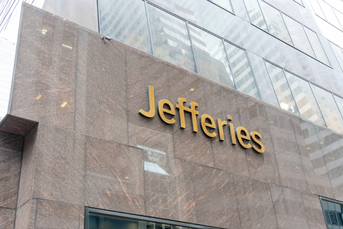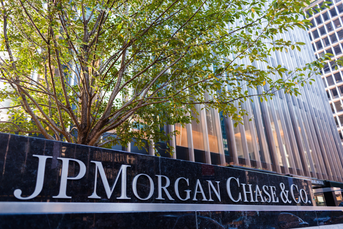Latest fascination for hedgies? Mutual funds
The prospect of tough new regulations in Europe has hedge funds hopping on the 'Ucits' bandwagon. But questions about liquidity, custody dog these collective-investment vehicles
Guy Hurley said he’s not sweating European plans for new hedge-fund rules after leaving Bank of America Corp.’s Merrill Lynch & Co. a year ago to start an onshore fund that uses strategies such as merger arbitrage.
“It’s not material to us because we’re not a hedge fund, we’re a mutual fund,” Hurley, founder of HCM (UK) Ltd., said in an interview at the firm’s headquarters on Grafton Street in Mayfair, the heart of London’s hedge-fund district. “Because we are in the Ucits business, we fully comply with European regulations already.”
Ucits, European funds known by the acronym for Undertakings for Collective Investment in Transferable Securities, are the fastest-growing segment of the $1.7 trillion industry. Brevan Howard Asset Management LP, York Capital Management LLC, Marshall Wace LLP and rivals started more than 400 of them in the past two years to offer easier trading, more transparency and regulatory scrutiny than standard hedge funds.
Strategic Investment Group in Arlington, Virginia, and Permal Group, a $20 billion hedge-fund investor owned by Baltimore’s Legg Mason Inc., today said they began a $250 million Ucits fund. Pfaeffikon, Switzerland-based LGT Capital Partners Ltd., which opened the Crown Managed Futures Ucits fund last month with $25 million, expects to manage “half a billion” in three years, said Edward Cartwright, head of U.K. wealth-management distribution.
GAIM International, Europe’s largest hedge-fund gathering, starts today in Monaco with a day of sessions dedicated to the funds, sometimes called Newcits.
Crisis Conditions
Some regulators and investors question whether the instruments will be able to meet promises, such as returning cash quickly to clients, when tested in a crisis like the banking squeeze that followed the September 2008 collapse of Lehman Brothers Holdings Inc.
The funds use a version of rules adopted in 2001 that allow investments on rising and falling prices through derivatives, with transparency of holdings more like mutual funds. Ucits, usually based in Luxembourg or Dublin, where regulators are most familiar with the format, are gaining popularity in part because they’re exempt from the European Union’s proposed Alternative Investment Fund Management Directive, which would limit the access of funds domiciled in the Cayman Islands and elsewhere outside the 27-nation nation bloc.
Lawmakers will publish a final version of the proposal in July, over objections from the U.S. and the U.K., where 80 percent of Europe’s hedge funds are managed.
‘Shoehorn’ Approach
“With all the offshore guys who desperately want an onshore strategy to get them through the gate of EU regulation, some of those will inevitably try to shoehorn a strategy into a Ucits wrapper that shouldn’t be there,” said Chris Wyllie, a partner with Iveagh Ltd., the London-based investment firm set up by the Guinness family, which has about 100 million pounds ($145 million) in the funds. “There’s bound to be a test case.”
Ucits assets overseen by hedge funds more than tripled in nine months to about $70 billion, according to Dublin-based Carne Global Financial Services Ltd. The firms had almost nothing in Ucits 18 months ago, said Carne Global, which helped hedge-fund managers start 50 of the funds in the past three years.
Driving demand is the ability of clients to withdraw money in as little as a day, compared with monthly or quarterly withdrawals for most conventional funds. Some hedge funds failed to meet those terms after the industry suffered its biggest losses on record two years ago. More than 83 percent of investors said they faced restrictions on pulling out money from hedge funds in 2008 and 2009, according to a Deutsche Bank AG survey.
‘Not Rocket Science’
“If you’re investing and someone gives you a choice of offshore with limited liquidity and onshore with daily liquidity, it’s not rocket science to figure out which investors will select,” said Philippe Bonnefoy, founder of Geneva-based Cedar Partners (Suisse) SA.
He is opening a Dublin-domiciled Ucits fund, his first onshore fund after investing offshore since 1989. “Few continental European investors want anything other than Ucits now,” Bonnefoy said.
The funds are required to have independent boards, custodians, administrators and auditors, all of whom must be supervised by a European regulator. Securities held by Ucits can’t be re-hypothecated, or lent out, a financing technique that tied up billions of dollars in hedge-fund assets in Lehman’s bankruptcy. The funds’ leverage, or borrowing, is limited and they can’t directly sell short, or bet on falling prices. They can use derivatives to wager on price declines.
‘Locust’ Label
Ucits show net asset values daily, as opposed to monthly with the typical hedge fund, and are required to fully disclose positions twice a year, according to Carne Global.
For some institutions, Ucits are a way to invest in hedge-fund strategies without invoking the ire of politicians or unions who regard them as “locusts,” as they’ve been called in Germany.
“In some markets such as Germany, branding yourself a hedge fund is an absolute no-no,” said Marilyn Ramplin, who left JPMorgan Chase & Co. in March to start Ramplin Capital, which helps set up the funds.
The funds can use derivatives to bet against sovereign debt, a practice French President Nicolas Sarkozy and German Chancellor Angela Merkel want to curb, according to Grellan O’Kelly, who oversees derivatives and risk management for the Irish Financial Services Regulatory Authority. Funds can take currency positions, O’Kelly said.
“Ucits, however, are not going to bring down Greece,” said O’Kelly, who speaks today at the GAIM conference. “There’s a limit to how much exposure they can have.”
Jumping on Bandwagon
While hedge funds are new to Ucits, the structure started in 1985 to allow access to individual investors through Europe’s common market with the approval of one member state. About $7 trillion is managed in the format by mutual funds, according to Carne Global. At least 70 percent of the publicly sold funds in Asia are Ucits, the firm said.
The U.K.’s Financial Service Authority, which oversees hedge-fund managers based there, said the firms may be ill- equipped to handle individual investor demands.
Hedge-fund managers are getting on what looks like a Ucits “bandwagon,” Dan Waters, the FSA’s director of conduct risk and sector leader for asset management, said in a Jan. 25 speech in London.
“We say ‘no’ on a regular basis,” O’Kelly said in a June 10 telephone interview from Dublin. “We’re not going to make the regulatory framework fit the fund. It has to be the other way around.”
Asset Allocators
Some hedge-fund allocators aren’t convinced the funds will be able to return capital as easily as they promise without hurting positions held by offshore funds run by the same managers.
“We haven’t seen these go through a stress period yet,” said Penny Aitken, investment manager of FQS Capital Management, a London-based fund-of-hedge-funds firm set up with $350 million last year by Robert Frey, a former managing director of Renaissance Technologies Corp. “When some of the larger institutions need to exit in significant size that should have an impact on other, smaller investors.”
Even some of the firms setting up the funds are concerned that rivals may offer better trading terms than they’ll actually be able to deliver.
“There can be blowups on the Ucits side as well,” said Werner von Baum, partner of LGT. “People have to look at not just the framework but the content. It’s not enough to say the liquidity will be there.”
‘Where the Money Is’
Proponents of Ucits say they bring in capital after it dried up from traditional investors such as funds of funds, whose ranks have thinned for seven straight quarters, according to Chicago-based Hedge Fund Research Inc.
“This is where the money is,” said John Donohoe, chief executive officer of Carne Global. “European investors are saying they want to be in regulated funds.”
While managers may look at Ucits as a way to circumvent hedge-fund and private-equity proposals that would restrict borrowing and pay, they aren’t likely to make a decision until EU officials in Brussels finish the plan, said Joe Seet, senior partner at Sigma Partnership, a London hedge-fund advisory firm. U.S. Treasury Secretary Timothy F. Geithner has raised concerns that the plan may discriminate against U.S. firms.
Start-Up Costs
The cost of setting up the funds may be too steep for smaller U.S. managers, said Seet, who factors in legal fees and expenses such as $50,000 a year plus travel for two Irish directors at each Dublin-registered fund.
“Everyone is holding fire,” said Seet, who estimates a manager needs to add $150 million to $200 million in assets via Ucits investors to justify the roll-out. “One of the biggest issues is whether they need to switch custodians to European custodians. European banks are bust, why should you be forced to give them your money?”
Ucits hedge funds as a group were outperformed by standard hedge funds over the last three years, according to Singapore- based research firm Eurekahedge Pte. Its index measuring regular hedge funds gained 20 percent in 2009, compared with almost 15 percent by one tracking Ucits funds, Eurekahedge said.
Traditional funds used leverage to increase returns, the firm said. Strategies including distressed debt and event-driven investing, or seeking to exploit prices before or after corporate events such as mergers, helped standard funds while being little used in the Ucits world.
Tracking Error
“The key difference with Ucits is the liquidity requirements — if a fund can only take a subset of some strategies that will create a tracking error,” said Deepak Gurnani, chief investment officer of Investcorp Investment Advisers LLC in New York, which manages about $4.5 billion in hedge funds, none in Ucits structures. “Regulation and transparency are all good things, but you have to understand exactly what can go into it, otherwise you may be disappointed.”
Philippe Jabre, founder of Geneva-based Jabre Capital Partners SA, teamed with Pictet & Cie, Switzerland’s biggest closely held private bank, to raise 800 million euros ($969 million) in February for a convertible-bond fund incorporated in Luxembourg. Jabre, who manages more than $5 billion, plans to seek $700 million for a second Ucits fund domiciled there that will match his Cayman Islands-based JabCap Global Balanced Fund Ltd.
Creating a Ucits fund doesn’t guarantee assets will flow.
Brevan Howard said in February it was changing managers on its Brevan Howard Absolute Return Bond Plus Fund after it generated “little investor interest,” according to a letter obtained by Bloomberg News. Brevan Howard, based in London, is Europe’s largest hedge-fund firm.
“There’s a good handful of funds going into it when they shouldn’t and others that could become $100 billion businesses,” said Ole Rollag, founder of London’s Perfecta Partners Ltd., an adviser to hedge funds. “There are going to be a handful of real winners.”
Learn more about reprints and licensing for this article.








